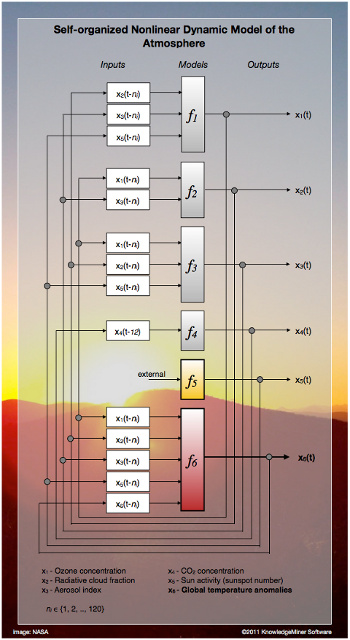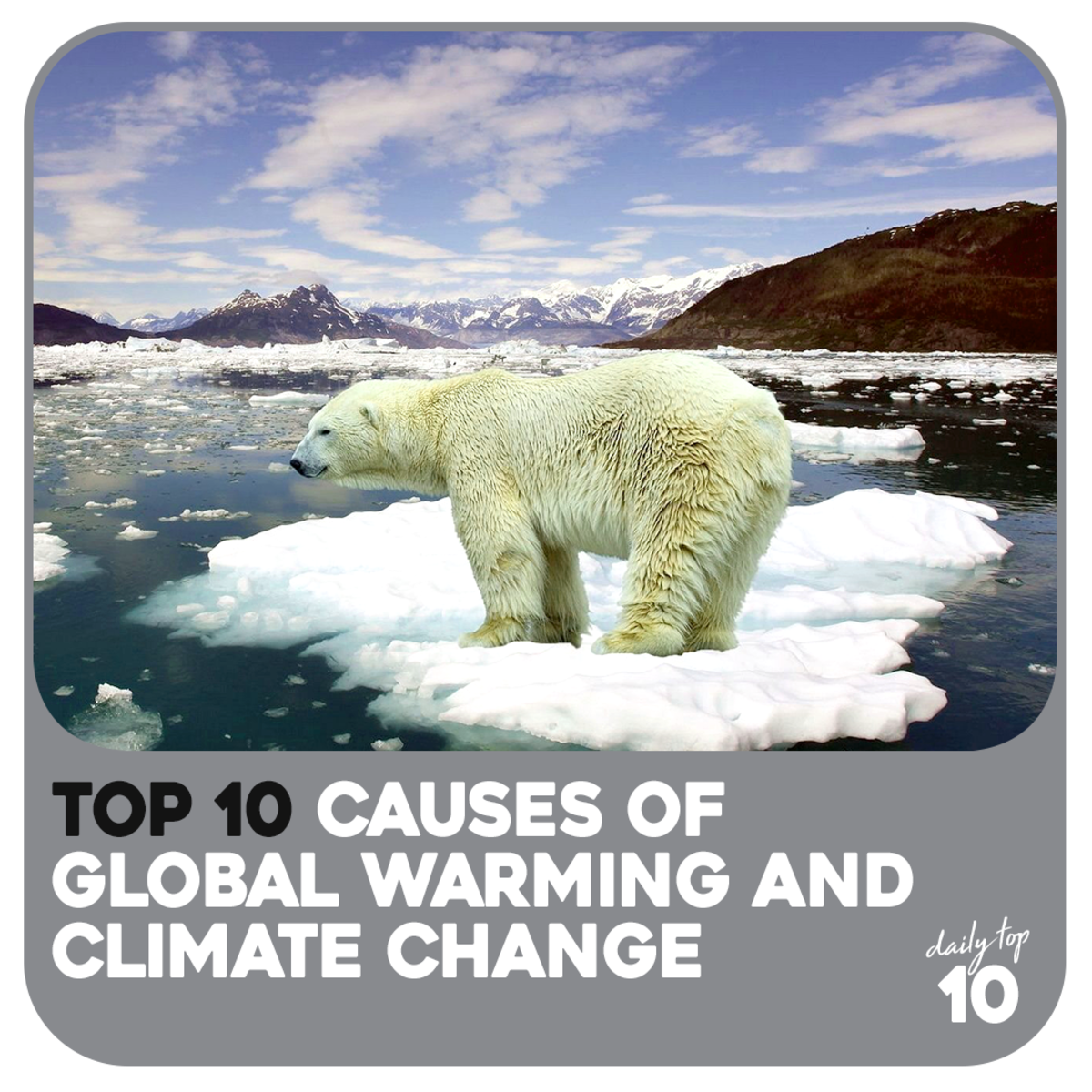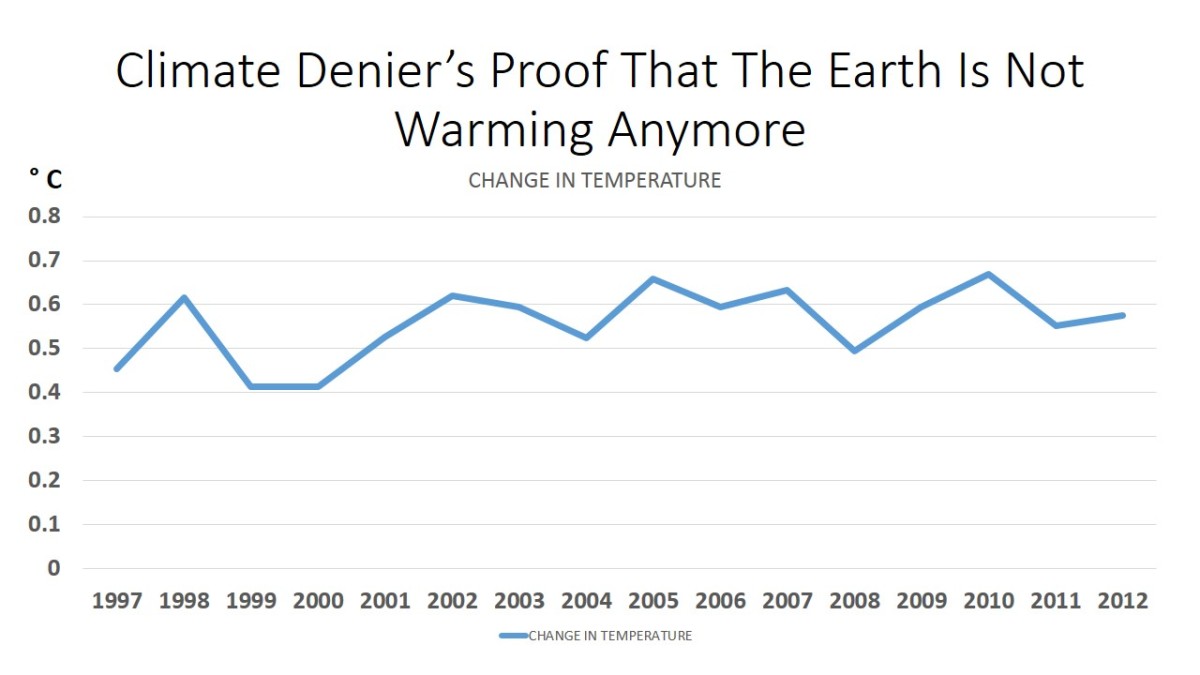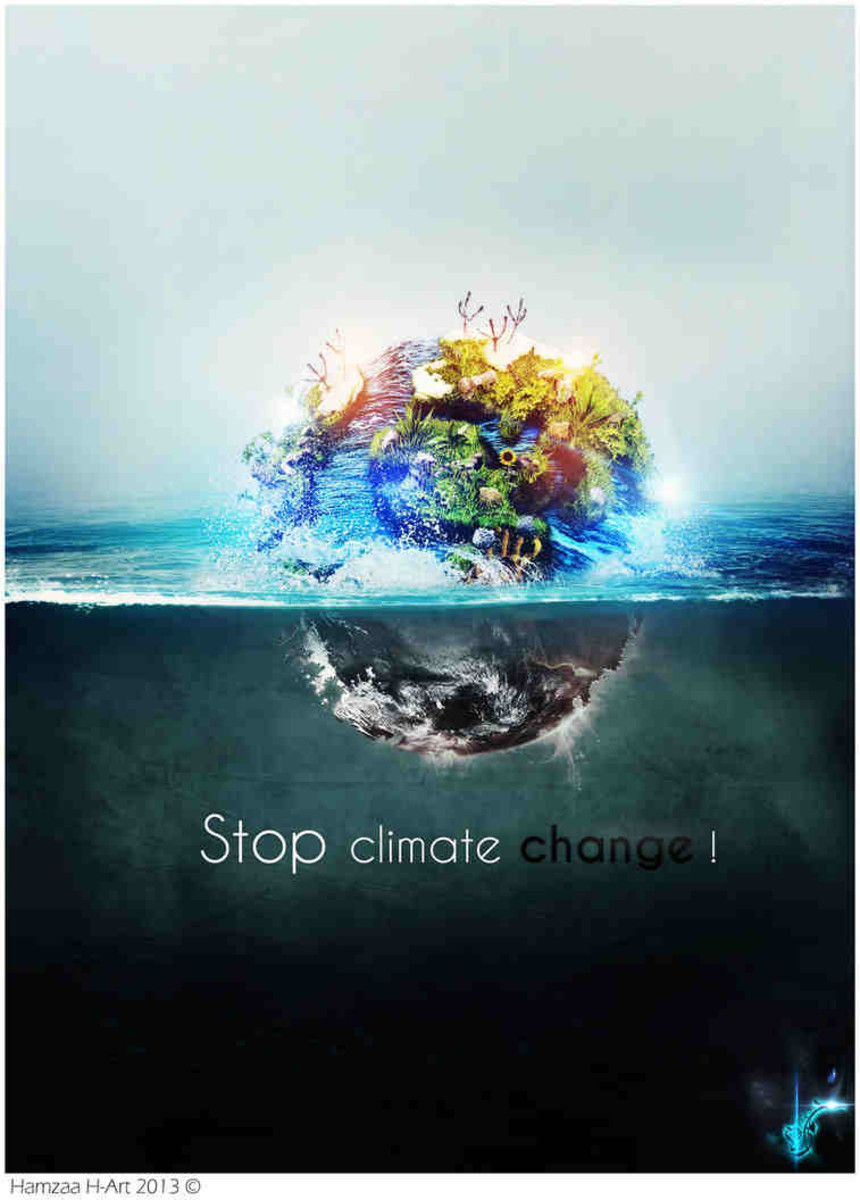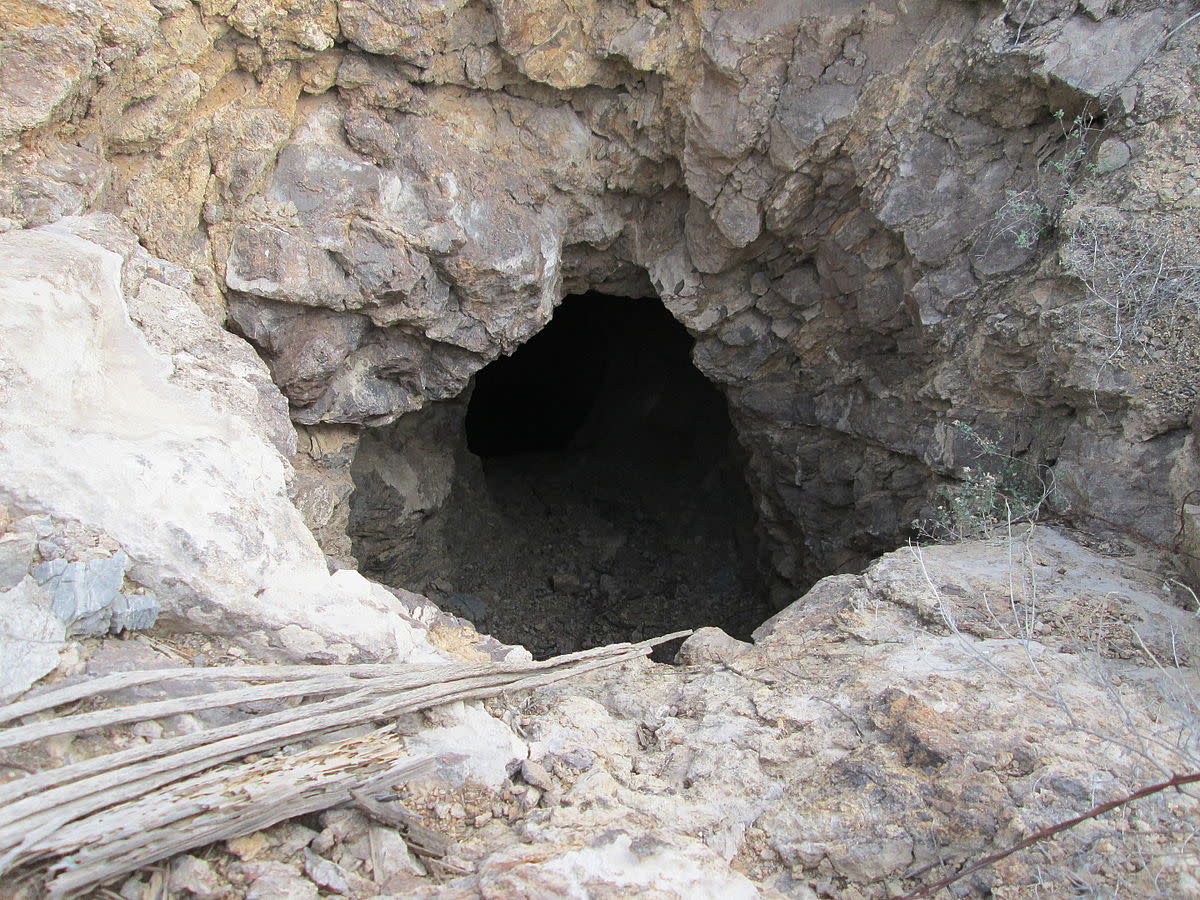2013 Human Caused Global Warming Truth Is An Elusive Beast
Posted January, 2013
The debate over human-caused global warming or human-caused climate change is like an argument between fleas trying to determine the shape of a dog, based on each flea's particular vantage point.

Which Fleas Can You Trust?
I have followed the argument about human-caused global warming for over three years, having written eleven previous articles on the subject here at Hubpages. After gaining valuable insights from doing this, I remain curious as to why, in the dissemination of knowledge, the pro-human-cause's claim continues to maintain a seemingly more prominent place than the anti-human-cause's claim.
To continue my opening analogy, some “fleas” seem to be getting more publicity than others. Now let us tweak the analogy (of fleas on a dog) to better characterize the situation, since most people already agree generally on what a dog looks like.
A better description of the climate beast is, perhaps, an animal with seven heads, the necks of some of which are longer than the necks of others. Patches of skin on the animal's forequarters have a different texture than patches of skin on the rear quarters. Scales on the head differ from scales on the feet. Musculature varies in tone and movement qualities over the entire organism. Even though each flea can predict a whole picture of the organism based on a particular perspective, no flea can stand back far enough to actually see the whole, in fact. Different fleas, thus, have conflicting pictures of the organism that they all inhabit.
The beast, nonetheless, exists as a whole coordinated being, but no one flea has yet achieved a perspective that reveals it's true appearance. Most fleas have chosen to behave as though the being has a definite appearance. Their actions, thus, have embodied into reflexes that are difficult to change, even though none of the fleas has ever seen the whole being clearly.
Consequently, the task of determining which “fleas” to trust in the climate debate is impossible.
Many of the “fleas” in today's climate debate appear to embody strong emotions that have transformed into now-reflexive behaviors that accomplish physical tasks in jobs, careers, or reputations. These economic habits are essentially survival habits linked to mission statements, institutional positions, philosophies, policies, and protocols, the threatening of which could threaten the very survival of those people who ask the wrong questions.
The Popular Account
The most popular account of climate change still seems to favor human beings as a primary cause, specifically as a consequence of producing carbon dioxide (CO2)through industrial activities. I remain uncertain as to whether such an account has gained popularity for the right reasons. My aim in this series of articles, then, has been to examine the less popular account in detail, in a manner that might shed more light on a possible greater truth than the truth currently dominating the spotlight.
The popular account seems to sustain its foundation largely on climate models, particularly on those climate models that the IPCC (International Panel on Climate Change) has incorporated into its forecasts.
I seem to detect increasing dissent over the use of these models, however. The following chart sums up objections to these models:
Problems With Current Climate Models
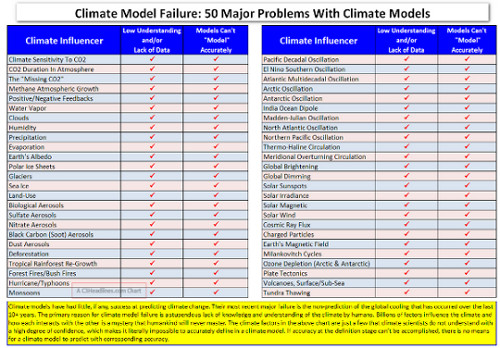
The Conundrum
My question, then, is, “If policy makers are aware of such problems, then how can policy makers so fervently endorse conclusions arising from limitations that such problems pose?”
This is where I detect: publicity overtaking science, reputation outperforming knowledge, politics replacing logic, and fear dominating inspiration. In the wake of intensifying debate, I see a hypersensitivity to researcher credentials, a demanding insistence on publication rank, an unforgiving criticism of information-source integrity, and an idolatrous emphasis on name status.
Many people, for example, argue that government grant money is “cleaner” than oil company money, begging the premise that oil companies have no other funding incentives than to pay off crooks to lie for them, or that researchers studying outside of an orthodox perspective are intentionally committing fraud to deceive the public. This popular mindset seems to be a fabrication based on misguided passions instead of a fact based on sound evidence.
In the interest of gaining a greater measure of credibility in the popular arena, therefore, I will attempt to present as pristine a case as possible. Towards this end, I direct your attention to the following illustrations:



The Less Popular Account
In the above group of illustrations:
- The top illustration shows that carbon dioxide (CO2) has continued to increase in Earth's atmosphere.
- The middle illustration shows that, from 1983-1997 (RED arrow), global average temperature increased, seemingly in step with increasing atmospheric CO2, but from 1998-2012 (BLUE arrow), global average temperature did NOT increase (even decreasing ever so slightly), now OUT OF STEP with increasing atmospheric CO2.
- The bottom illustration shows a comparison between the IPCC's climate model prediction and the observed reality.
In other words, the facts show that global average temperature has NOT obeyed IPCC climate model predictions. Rather, global average temperature has continued to remain essentially the same for the past fourteen years, which is roughly half a climate cycle [one climate cycle equals 30 years].
Okay, What's Your Source?
Where does this data assessment come from? Does it come from oil-comapny-funded special-interest groups? Does it come from university-supported research teams? Does it come from low-ranked scholarly journals or blacklisted journals?, ... from high-ranked scholarly journals or prestigious orthodox journals?, ... from astronomers?,... from climate scientists proper?, ... from name-brand public figures?
The answer is that this data assessment comes from a private company specializing in data analysis – a company NOT funded by oil companies, NOT funded by government grants, NOT associated with political lobbyists, and, as far as I can detect, NOT tainted by any other popularly criticized attributes.
The company that produced this assessment is a private company named KnowledgeMiner Software, according to its website description, “a research, consulting and software development company in the field of high-end predictive modeling.” The parent company is USU Software. This climate data is the result of one of the company's focused projects – Global Warming Prediction Project. Some of KnowldgeMiner Software's other projects, according to its company overview have involved:
- Cancer research,
- Prediction of waste water precipitation and waste water reuse,
- Analyzing medical data obtained from observing eye movement of children (both healthy children and those who display reading abnormalities),
- Modeling and prediction of regional economies and related economic problems,
- Problematic pharmaceutical manufacturing processes,
- Researching various aspects of language teaching and learning,
- Discovering the relationship between altered multiple sclerosis intensities in the caudate nucleus and patient disability.
And just to clarify, for anybody worrying about the word, “miner”, in the company's name, this has NOTHING to do with the mining industry – it is a metaphorical use of the word, “mining”, as in “mining knowledge from raw data”.
From all appearances, the organization that produced the above information is carrying out a broader mission, which is to extract useful findings from raw data, whatever the data might be.
Applying such a mission to climate data, this company does NOT find a significant relationship between Earth's average temperature and Earth's atmospheric CO2 concentration.
Other Sources Agree
Two other stand-out sources in my reading agree that the popular belief linking Earth's temperature to Earth's atmospheric CO2 is NOT correct:
Ned Nikolov, Ph.D. & Karl Zeller, Ph.D. (2011) Unified Theory of Climate
Expanding The Concept Of Atmospheric Greenhouse Effect Using Thermodynamic Principles: Implications For Predicting Future Climate Change [Extended version of the poster presented at the Open Science Conference of the World Climate Research Program, 24 October 2011, Denver CO, USA] [downloaded on 01-23-2013 at
http://tallbloke.files.wordpress.com/2011/12/unified_theory_of_climate_poster_nikolov_zeller.pdf]
Joachim Seifert and Frank Lemke (2012), Five Climate Forcing Mechanisms Govern 20,000 Years Of Climate Change, [downloaded on 01-23-2013 at
http://www.klimaatfraude.info/docs/Five-climate-forcing-mechanisms.pdf]
Both of these sources, again, point to the serious shortcomings of IPCC's climate models, indicating a far greater degree of complexity in climate dynamics than popular understandings account for.
So What Are We Supposed To Believe?
Anybody following climate science who believes that “the science is settled” has the WRONG impression of how science really works. Science is never settled, because this is not what science does. Scientists who allow such a mistaken notion to flourish, thus, are perpetuating a false view of their chosen careers.
As the late phsicist, David Bohm wrote [Lee Nichol, ed. (2003), THE ESSENTIAL DAVID BOHM, p. 73]:
“... it is the fate of all theories eventually to be falsified, so that they are relative truths, adequate in certain domains, including what has already been observed, along with some as yet further unknown region that can be delimited, to some extent at least, in future experiments and observations.”
Even if today's popular “theory” of global warming were well founded (which I believe it is NOT), this “theory” has evolved within a “certain domain”, which I interpret as a certain state of knowledge in a certain historical time. Such a popular theory, then, is subject to scrutiny in FUTURE domains, where new knowledge or new perspectives on knowledge emerge. I believe that we are in such a new domain of knowledge now, and, as in all great epics where knowledge advances, the implications are uncomfortable for those asked to change to a more fitting paradigm for the times.
Dynamic Model Of Earth's Atmosphere
